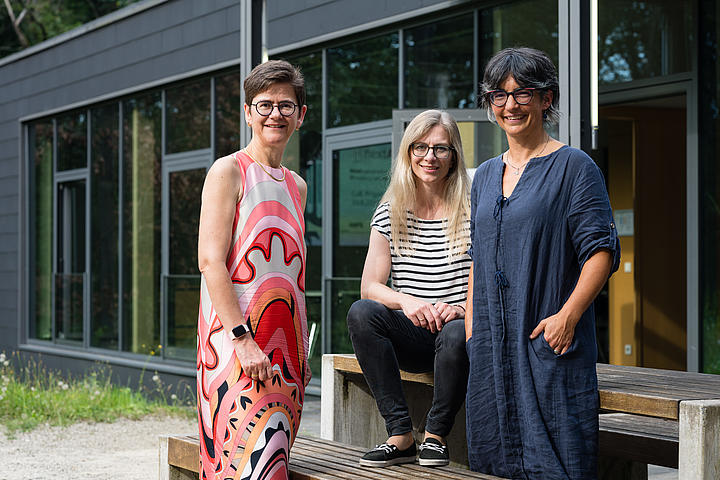Cluster of Excellence application for drug research was reviewed on site - decision on 22 May

In August, Saarland University was able to submit a full proposal for a Cluster of Excellence for drug research. This project, entitled ‘nextAID³ - Next Generation of Kl-driven Drug Discovery and Development’, has now been reviewed by international scientists on site. On 22 May 2025, the German Research Foundation and the German Council of Science and Humanities will announce which new Clusters of Excellence will be funded in the future.
‘Saarland University presented itself very well last Thursday and successfully passed the on-site assessment. Of course, everything is still open, as it is a very competitive competition with very strong rivals,’ explains University President Ludger Santen. ‘We are therefore very much looking forward to the funding decision. My thanks go to the entire team, who have worked hard over a long period of time to develop this promising application. The previous Executive Board was also committed to driving this process forward,’ says University President Santen.
‘The nextAID³ cluster application stands for revolutionising the search for new drugs with customised AI and exemplary interdisciplinary collaboration between the university and research institutes at the highest level. The application has the full support of the state government. I was able to attend the inspection and was impressed by the presentation of our cluster, the in-depth examination of our application by the international reviewers and the great team spirit in our interdisciplinary cluster team. Our scientists really gave their all. Now it's time to keep our fingers crossed for the big decision in May,’ says Saarland Science Minister Jakob von Weizsäcker.
In the NanoBioMed area, the ‘nextAID³’ cluster is planning new and innovative approaches for AI-driven drug research and development. The interdisciplinary research team is led by Professors Anna Hirsch, Martina Sester and Andrea Volkamer. On the university side, pharmaceutical research, computer science research and biomedical research at the Faculty of Medicine and Saarland University Hospital (UKS) are involved. Scientists from the Helmholtz Institute for Pharmaceutical Research Saarland (HIPS), the Helmholtz Centre for Information Security (CISPA), the German Research Centre for Artificial Intelligence (DFKI) and the Leibniz Institute for New Materials (INM) are also involved.
